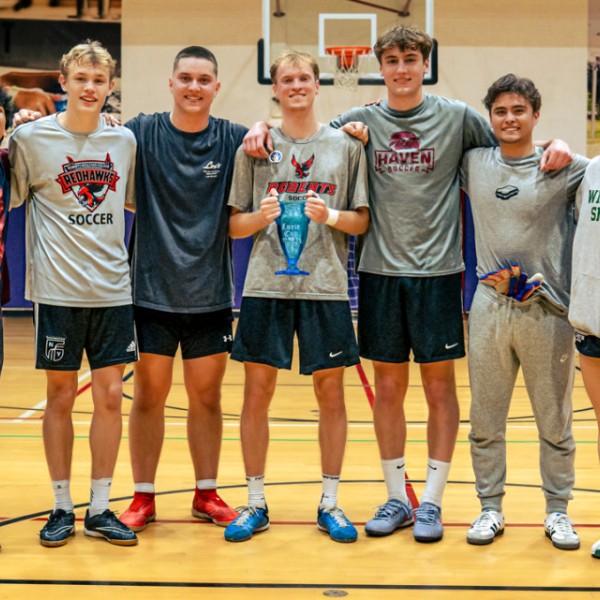Changing the world
I want to make a permanent impact on the world that changes the way we see it. I don’t want to do this through something large for everyone, but something as simple as a small change for a billion lives. If I were to make a sociological observation or find a public health tool/intervention that could change the lives for a billion people, that could have a large impact on the world. It could fundamentally change the way we go about improving a public health issue like obesity or looking at society in a way that could maximize housing for the homeless.
Connecting
My most memorable and impactful experience by far was participating in the Global Health Program in Lusaka, Zambia. Before coming to Cornell, I had never left the southern part of the United States. I did not know much about Zambia or Africa broadly; this program not only allowed me to learn more about this place and region, but to visit both (which I never even considered possible before). I had such a great relationship with my homestay family. We talk regularly and plan to visit each other once coronavirus is over. Overall, my entire experience in Zambia honestly felt like home and it will always have a special place in my heart.
Pushing boundaries
I was involved with many things at Cornell; track and field, the Global Health Program, the Global Citizenship and Sustainability Program, and the English Language Support Office’s Speaking Groups Program. There were many other things that are equally important, but I picked these four experiences because they each involve an international component (which is very important to me).
As I mentioned before, I had never left the country before coming to Cornell, nor met students from international backgrounds. Being able to travel to the United Kingdom through track, and Zambia and Malaysia through the programs, were all eye-opening experiences that pushed the boundaries of what I considered possible in terms of knowledge and experiences.
Furthermore, having a speaking group program with international students allowed me to learn more about different places and cultures from people who are actually from there, not just the internet or the classroom. Holistically, these all changed the way that I interact with the world and increased my aspirations and proficiency in my studies; a great way to think about this is to relate it to coronavirus – many health issues (like this one) are not just public, but global! We need a larger and more comprehensive understanding of the world to deal with these issues, especially with increasing globalization.
+ Hometown: Tulsa, Oklahoma
+ Favorite study spot: MY BED!
+ What inspires me: LIFE. Seeing how short it is but yet full and vibrant makes me want to achieve as much as I can.



Ben competes in the 2018 Outdoor Ivy Heps as a member of the Cornell Track and Field team.
Ben checks on the chickens at his homestay family's house in Zambia as a part of the Global Health Program.
Ben arrives in Zambia as a part of the Global Health Program.
Dealing with a pandemic
Honestly, it was pretty rough. I live in a multi-generational household and had to share a room with another college student and a high school student. I come from a non-traditional household background, and we aren’t the wealthiest people, so I faced many challenges trying to find places to study/take exams, afford the internet, and more. Fortunately, I was able to muster the resources to finish strong, and the school offering the satisfactory/unsatisfactory grading option really added to the peace of mind that was essential to my mental health and being able to finish.
Preparing for the journey ahead
My time at CALS prepared me socially, emotionally, and academically. Cornell is a very tough place academically, and there are many things that I had to adapt to: the rigor of the coursework, the social scene, trying to learn the cultural and social capital needed to succeed. Cornell is one of the schools in the highest tier, so it prepares you for anything that the education system has to throw at you.
Global Development in a sentence
This is a department that will teach you the non-status quo information that is not usually taught in the classroom, which will change your entire fundamental framework of seeing the world.
Finding a mentor
I admire Professor Thomas Hirschl the most. He has been such a great researcher, professor, and mentor. He has changed my life and helped me do things that I would have never believed possible. I hope to one day influence the world at the same magnitude that he influenced me.
Confronting fear
The largest fear I have in life is not reaching my potential; I believe that I can change the world, and if I were to die with everything still looking the way it does today, I would be very sad.
Aspirations
Cornell University and my department have truly been a magical place for me. My time here has increased my knowledge to include things I did not realize existed. It has equipped me with opportunities that I never believed, and it has changed my desires and aspirations in the world. Thank you so much Cornell and all of its people, and I will cherish my experience forever!
Keep Exploring

News
Research on prior surveys finds very few people have been asked why they chose not to take preventative actions.
- Cornell Integrated Pest Management
- Entomology
- Disease

News
Rohan Amin's Lurie Cup soccer tournament brings people together from Cornell and around New York state to support the pediatric hospital that saved his life.
- Global Development

We openly share valuable knowledge.
Sign up for more insights, discoveries and solutions.


